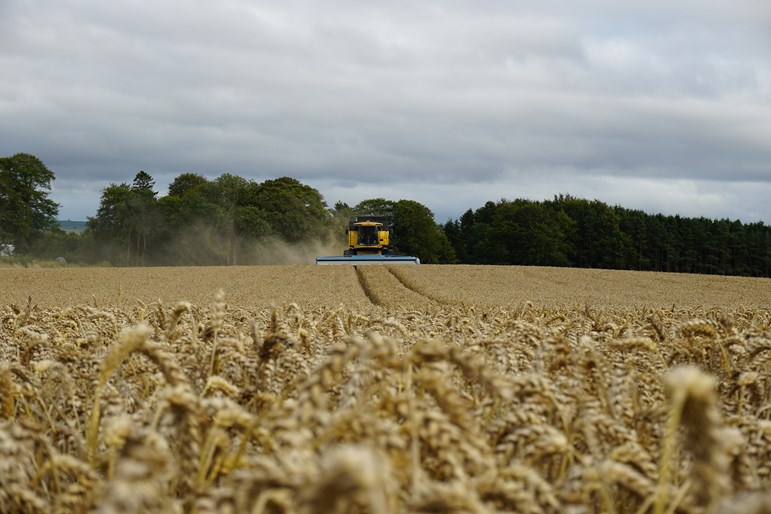Carbon audits boom, but are they relevant?

Ross Mitchell of Castleton Farm has undertaken two carbon audits on-farm.
Carbon audits must not be treated as another tick box exercise for farmers but viewed as an opportunity to add value to a farming business.
SAC Consulting, part of SRUC, has reported almost a 50 per cent increase in completed carbon audits using its carbon calculator tool Agrecalc in the past six months, compared with 2021, driven by the evolving climate agenda and pressure from the supply chain.
However, consultants have warned that farmers should be mindful they take the time to enter quality data to ensure it isn’t a wasted exercise.
Senior Consultant Zach Reilly said: “Farms are seeing an increase in paperwork from a range of sources, so it is important that a carbon audit is not viewed as another unrewarding process a farm has to go through to access relevant funding.
“Spending an extra five or ten minutes to enter quality data is the best way to make the process worthwhile. Looking up exact fuel use for example, can often be the difference between a useful audit and a tick box exercise. A key thing to remember about the initial carbon audit is that it provides a baseline - often the added value comes from repeating the process.”
Aberdeenshire farmer Ross Mitchell, of Castleton Farm, has completed two carbon audits for his business.
“Taking the time to input quality information as part of the audit process is crucial if farmers want to obtain quality results at the other end,” he said. “I think the industry needs consistency in how it carries out audits to make sure results are comparable.”
A carbon audit is often referred to as a resource efficiency calculator - the more efficiently a business uses its inputs, such as fertiliser or feed, the lower emissions generally are. The metrics driving low emissions are often the key drivers for a business’s profitability, from calving percentage to silage quality.
Zach added that accurate data is key to ensuring the audit is useful to help reduce emissions and inputs on the farm.
“Identify where data was estimated or guessed and see if more accurate ‘real’ data can be collected for the year ahead,” he said. “That may mean keeping better fuel use records, weighing livestock more regularly or installing smart meters. These will all help to make the carbon auditing process more efficient and effective in the future.”
Once a farm has a baseline to work with, there are five areas that SAC Consulting’s Farming For a Better Climate Group (FFBC) has identified as being key to reducing emissions and increasing profitability.
Project Manager for FFBC Rebecca Audsley said: “Developing renewable energy, improving soil and fertiliser management, reducing energy and fuel usage, increasing livestock efficiency and carbon sequestration, are all positive actions which can be taken by many farm types.
“These are all steps which will help the industry move towards net zero and with the Scottish Government recently announcing funding for carbon audits through Preparing for Sustainable Farming (PSF), farms can now complete a carbon audit at no or low cost. This new funding stream is due to replace the existing funding available through the Farm Advisory Service.”
For more information and to continue the conversation on carbon, you can listen to Farming For a Better Climate’s new podcast series.
Posted by SRUC on 15/08/2022
